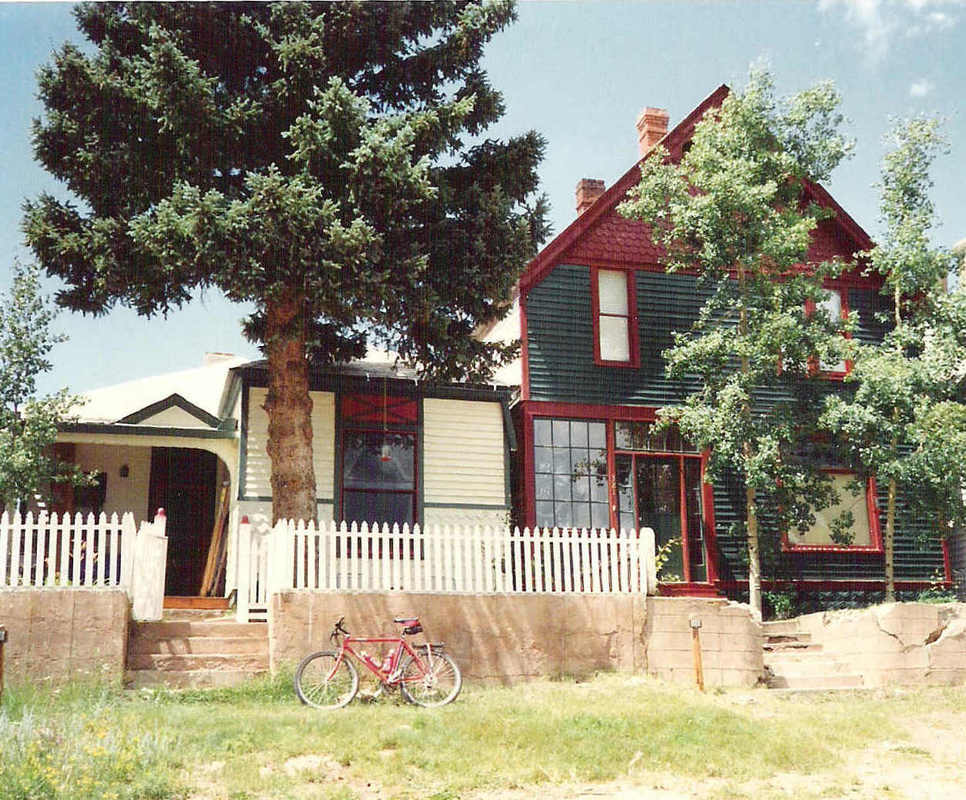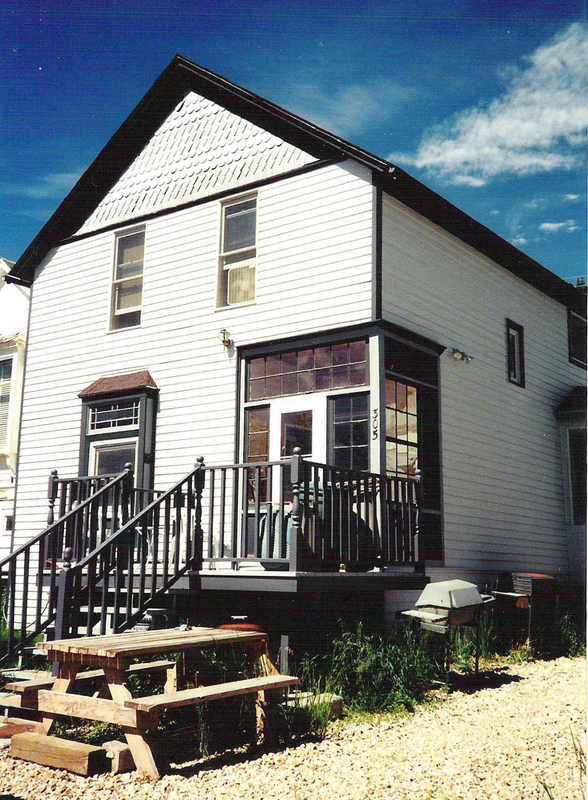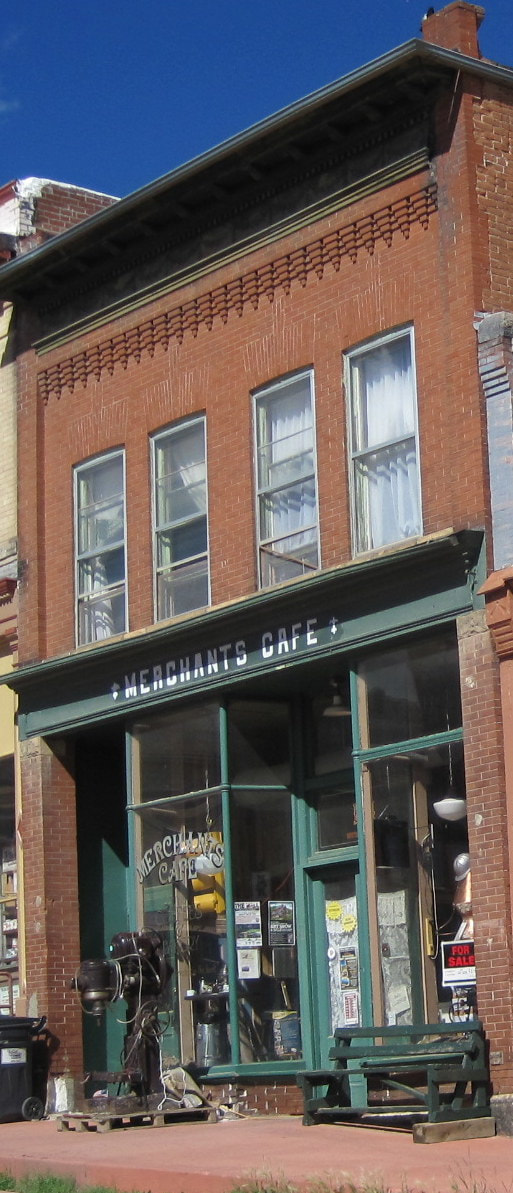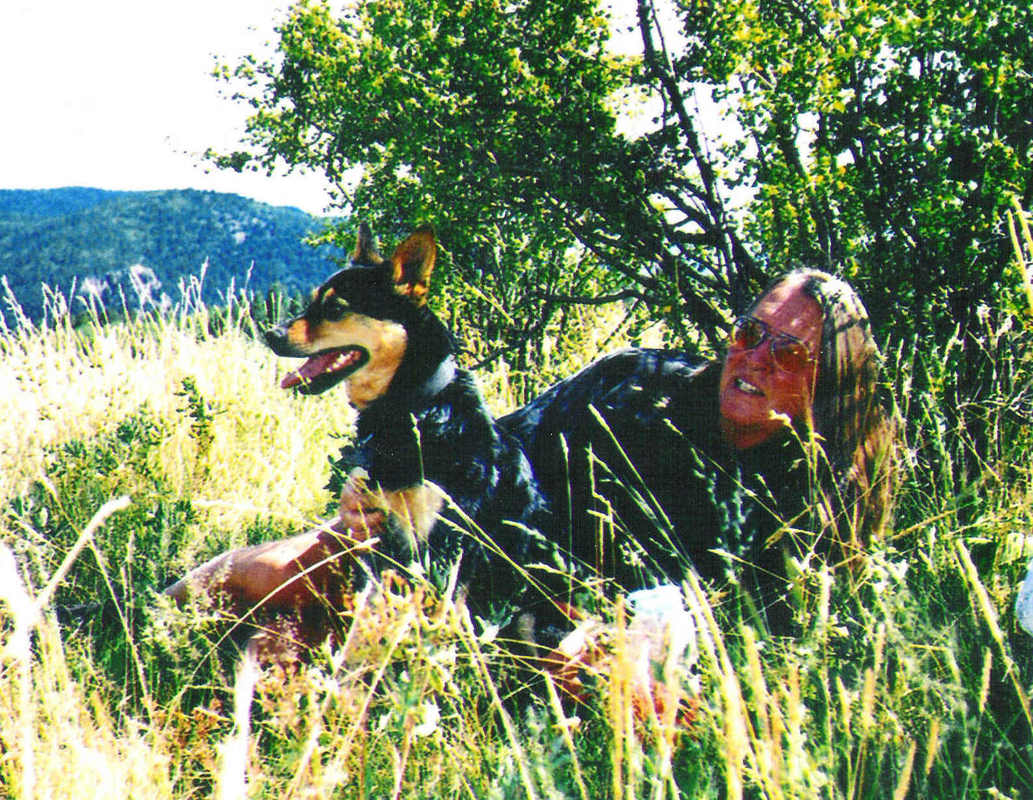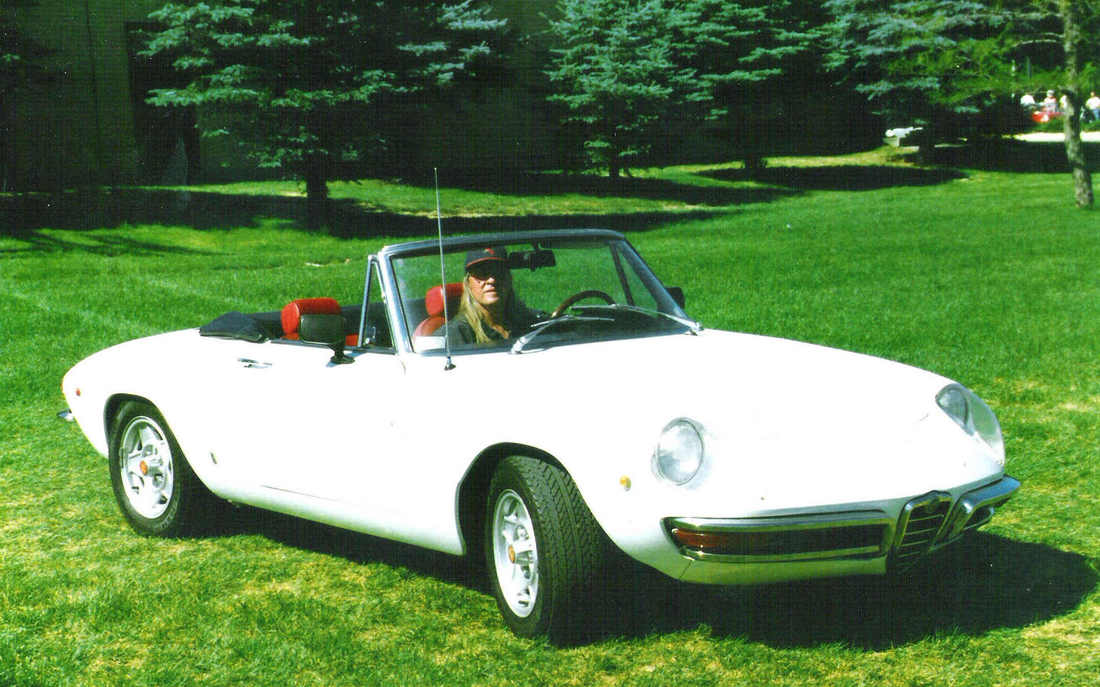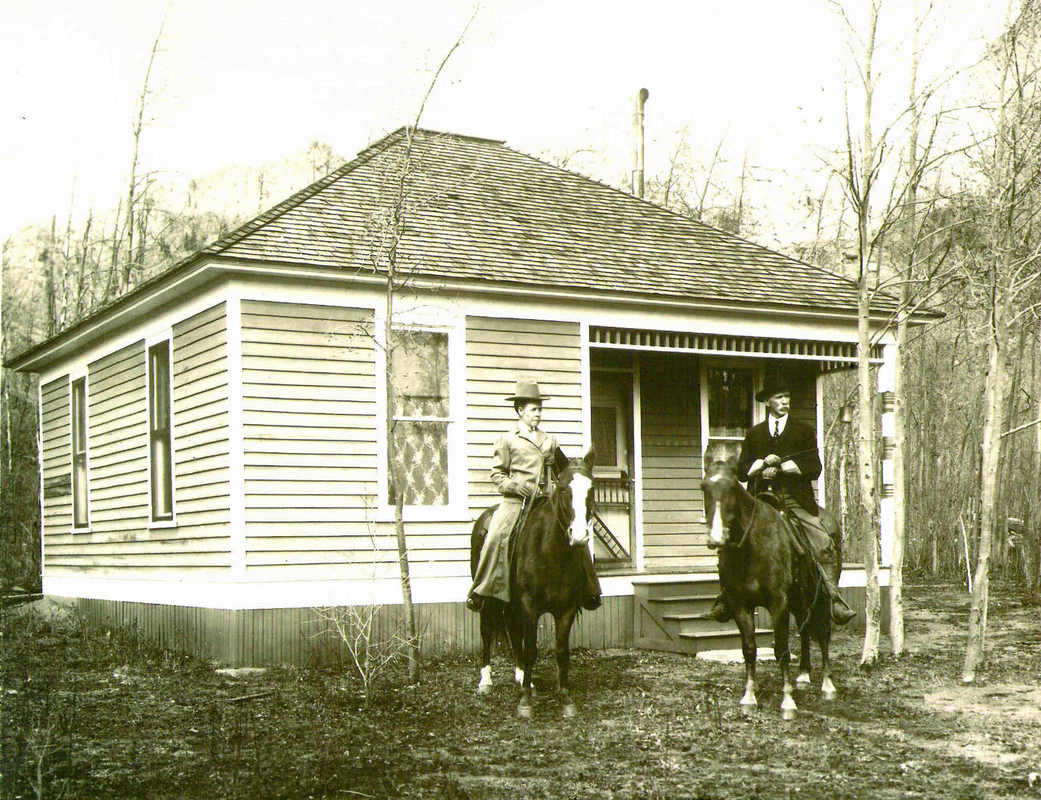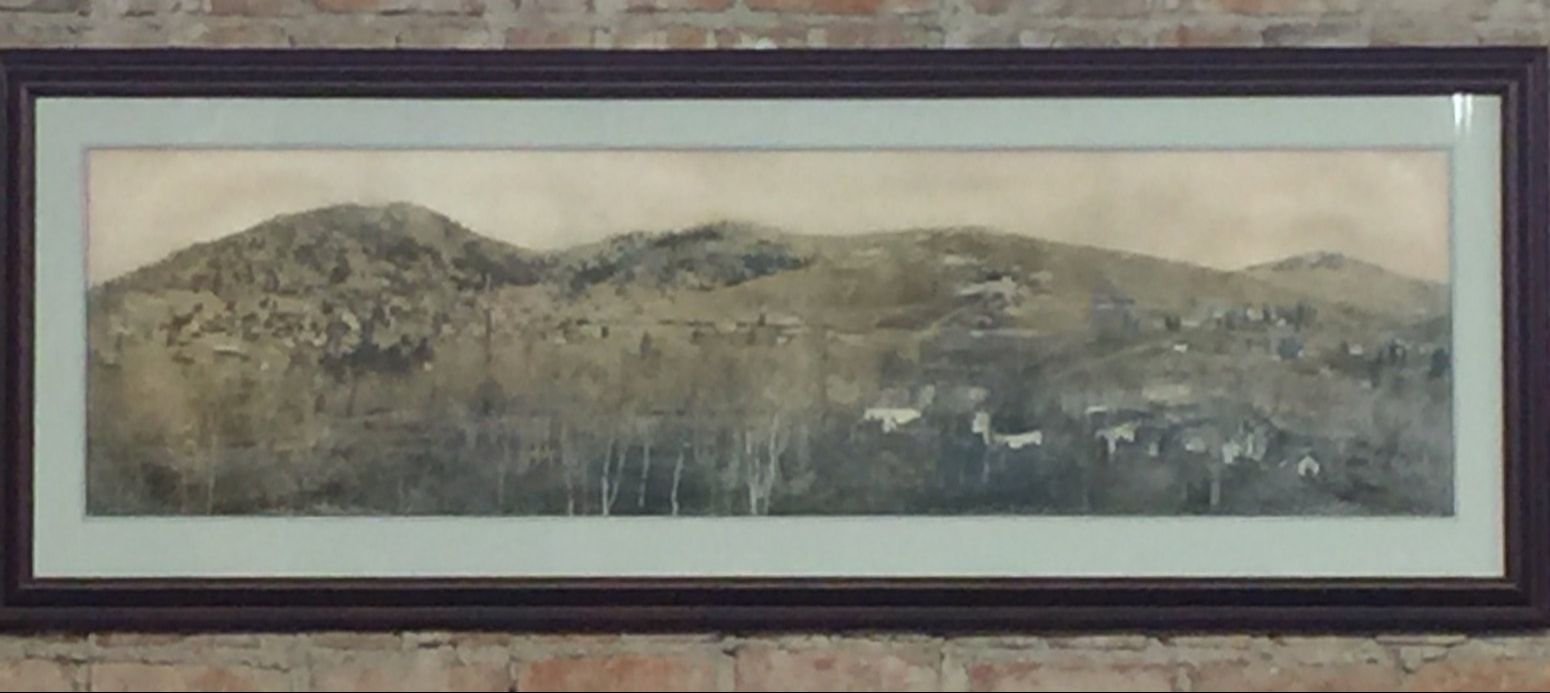McCormick Family Connections to Victor, Colorado (1893-2014):
Portland Master Mechanic, Vindicator Superintendant, Scottish Poet, Labor War Casualty, Preservation Activist, Historic Memorabilia Collector.
By Mary Ann McCormick Hamm, sister of David McCormick (1941-2014).
It was in 1893 when our grandfather, Malcolm McCormack, came to Victor for gold mining. At that time our great grandfather, William McCormack, and our great uncle, Charles McCormack, were already miners in Victor.
Our grandparents, Malcolm McCormack and Margaret Shanks, were not yet married when they lived in Victor. Their families had all come over on a boat from a coal mining background in Scotland to work in the gold mines near Victor. The McCormacks lived as a “clan” in the mining camps.
From what I understand there were both Irish and Scottish “clans” working in the mines. I have also heard that the two didn’t get along. About 1900 the family changed the spelling of their name to McCormick—the more Irish spelling that we use today.
When the union wars broke out in 1903, our great grandfather, William McCormick, was the Master Mechanic at the Portland Mine. Our great uncle, Charles McCormick, was Superintendant of the Vindicator Mine. On November 21, 1903, there was an explosion at the sixth level station in the Vindicator. Two men were “accidentally” killed—Charles McCormick and Melvin Beck (the shift boss). The explosion was caused by a bomb allegedly planted by Harry Orchard—a confessed henchman for the Western Federation of Miners Labor Union, who intended to harm nonunion strike-breakers working on the seventh level of the mine.
As a result of the violence, the Scottish “McCormick Clan” left Victor in 1904 for mining work in Sonora, Mexico. Among those in the “clan” who left were our great grandparents (William and Teenie McCormick), grandfather (Malcolm McCormick) and grandmother (Margaret Starks and her family).
Our grandparents, Malcolm and Margaret McCormick, crossed the border from Sonora to Tombstone, Arizona to be married in 1908. They had two children born in Sonora, Mexico—our father, Gordon (b 1909), and our aunt Jeanne (b 1912).
When the Mexican War started, the “McCormick Clan” moved to Jerome, Arizona to work in the copper mines. Our grandfather, Malcolm McCormick, lost an arm below the elbow in a mining accident and received a settlement check because the injury prevented him from working again. In the early 1920’s our grandparents moved to Denver, invested grandfather Malcolm’s mining money, and were able to live on it until he passed at age 92. I still have the first gold nugget mined by my grandfather mounted on a stick pin.
In 1938 our parents, Gordon McCormick and Alice Greene, were married in Denver. They had two children—my brother, David Malcolm (b 1941, d 2014) and me, Mary Ann (b 1945). After living in several other states, in 1949 our family returned to Denver where our father owned a Canteen Vending Machine Business.
Portland Master Mechanic, Vindicator Superintendant, Scottish Poet, Labor War Casualty, Preservation Activist, Historic Memorabilia Collector.
By Mary Ann McCormick Hamm, sister of David McCormick (1941-2014).
It was in 1893 when our grandfather, Malcolm McCormack, came to Victor for gold mining. At that time our great grandfather, William McCormack, and our great uncle, Charles McCormack, were already miners in Victor.
Our grandparents, Malcolm McCormack and Margaret Shanks, were not yet married when they lived in Victor. Their families had all come over on a boat from a coal mining background in Scotland to work in the gold mines near Victor. The McCormacks lived as a “clan” in the mining camps.
From what I understand there were both Irish and Scottish “clans” working in the mines. I have also heard that the two didn’t get along. About 1900 the family changed the spelling of their name to McCormick—the more Irish spelling that we use today.
When the union wars broke out in 1903, our great grandfather, William McCormick, was the Master Mechanic at the Portland Mine. Our great uncle, Charles McCormick, was Superintendant of the Vindicator Mine. On November 21, 1903, there was an explosion at the sixth level station in the Vindicator. Two men were “accidentally” killed—Charles McCormick and Melvin Beck (the shift boss). The explosion was caused by a bomb allegedly planted by Harry Orchard—a confessed henchman for the Western Federation of Miners Labor Union, who intended to harm nonunion strike-breakers working on the seventh level of the mine.
As a result of the violence, the Scottish “McCormick Clan” left Victor in 1904 for mining work in Sonora, Mexico. Among those in the “clan” who left were our great grandparents (William and Teenie McCormick), grandfather (Malcolm McCormick) and grandmother (Margaret Starks and her family).
Our grandparents, Malcolm and Margaret McCormick, crossed the border from Sonora to Tombstone, Arizona to be married in 1908. They had two children born in Sonora, Mexico—our father, Gordon (b 1909), and our aunt Jeanne (b 1912).
When the Mexican War started, the “McCormick Clan” moved to Jerome, Arizona to work in the copper mines. Our grandfather, Malcolm McCormick, lost an arm below the elbow in a mining accident and received a settlement check because the injury prevented him from working again. In the early 1920’s our grandparents moved to Denver, invested grandfather Malcolm’s mining money, and were able to live on it until he passed at age 92. I still have the first gold nugget mined by my grandfather mounted on a stick pin.
In 1938 our parents, Gordon McCormick and Alice Greene, were married in Denver. They had two children—my brother, David Malcolm (b 1941, d 2014) and me, Mary Ann (b 1945). After living in several other states, in 1949 our family returned to Denver where our father owned a Canteen Vending Machine Business.
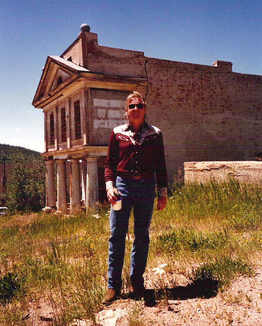 David McCormick, about 1980. Iconic Christian Science Church in background was lost forever in 2000 due to neglect and indifference, despite vigorous protestations from Bean and others.
David McCormick, about 1980. Iconic Christian Science Church in background was lost forever in 2000 due to neglect and indifference, despite vigorous protestations from Bean and others.
My brother David, affectionately known as "Bean" by his friends, ran a successful restaurant business in Denver. He bought a home in Victor in the late 1960s and, after retiring, lived there full-time. David McCormick was an active member of the Victor Elks, Bison Fishing Club, and numerous other civic organizations. He also served on the Victor City Planning & Historic Preservation Commissions where he worked with others to protect the scenic viewsheds of the city from encroachment by ever expanding surface mining. A true preservationist at heart, Bean was a founding member of the Victor Heritage Society. In addition to restoring his historic home at 323 South 4th Street, he was also responsible for saving and restoring a dilapidated house at 305 South 4th Street (which he managed as the Midnight Inn B&B), and restoring the commercial building at 104 South 3rd Street (known by many as the location of Barnett’s Furniture store, and in earlier times as the Merchants Cafe).
Bean was also known for generously volunteering to cook for functions at the Elks Lodge, Bison Reservoir Fishing Club and the Teller County Fair, helping maintain the cabins at Bison, hiking from the Reservoir to Pikes Peak, biking around the Mining District with friends, and taking extended winter trips to Mexico and South America. Some of his most favorite things were his dog “Barney”, driving his Alfa Romeo Spider in Gold Rush Days Parades, and enjoying life in the City of Victor where our McCormick family ties date back to at least 1893.
Family ties explain something else that was a treasure to David and our family—a very large and rare early photo showing what Victor looked like when the city was first established in 1893/94. Our family commissioned the Victor Heritage Society to find a place where this photo can be preserved and displayed so everyone can see the great historic picture of Victor that Dave loved so much.
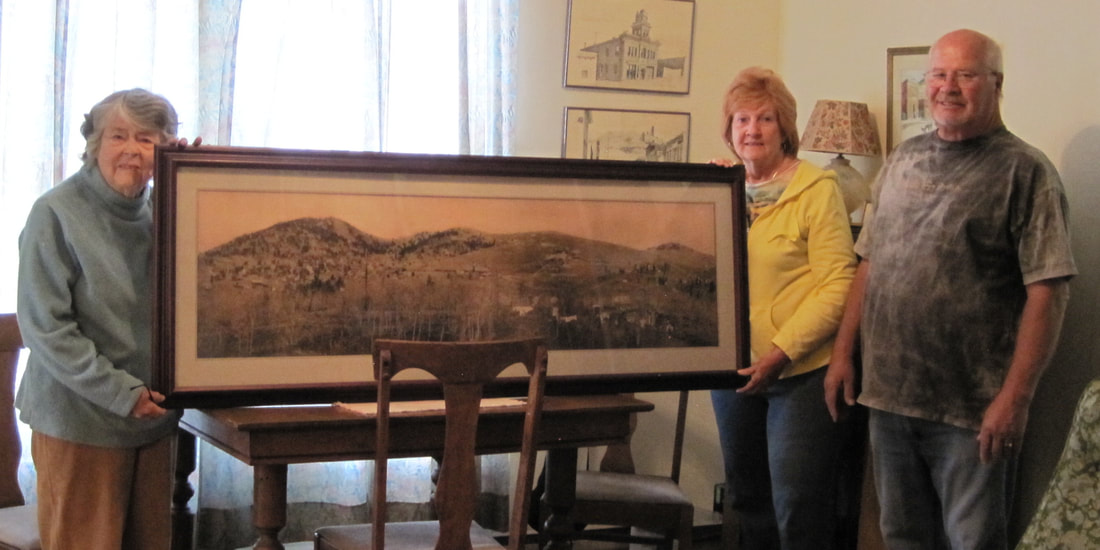
Mary Ann & Bill Hamm present Dee Page (left, representing the Victor Heritage Society) with David McCormick's treasured photo showing how Victor looked when the city was established nearly 125 years ago and the McCormick family first came to the Mining District. The photo is on display at the Claim Jumper / Post Office building.
More about Our Great Grandfather William McCormick (1851-1914)—Miner & Scottish Poet
|
Our great grandfather, William McCormick, was born in Scotland in 1851.
William became a popular speaker noted for public addresses in Walsenburg (1894), at the Robert Burns Celebration in Florence (1895) and at the Master Mechanics Club of the Cripple Creek Mining District (1900). He often “spoke/sung” in verse as exemplified by his poem titled “The Miner” (see column to right). |
THE MINER By William McCormick Who toils in caverns dark and drear, Where rays of sunshine never cheer, Where death and danger’s ever near? The Miner. Who toils beset with many a foe, ‘Midst treach’rous gas that lurks below, And bursting water’s dreadful flow? The Miner. In weary toil, day after day, Whilst health and vigor soon decay, Ah! hard his lot and scant his pay, The Miner. Far down beneath the verdant fields, Where mother earth her treasure yields, With weary arms his pick he wields, The Miner. His trade supports our commerce free, And spreads our wealth o’re land and sea, Ah! much indeed we owe to thee, Poor Miner. Then let us prize the miner’s skill, And bear him friendship and good will, Remember he’s our brother still, The Miner. |
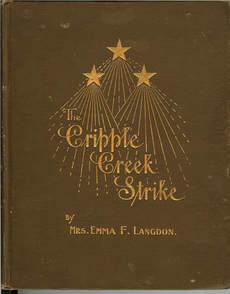 William McCormick's poem, "HERE'S TO YOU, JIM", can be found in Emma Langdon's book about the 1903-04 Labor Wars. William McCormick's poem, "HERE'S TO YOU, JIM", can be found in Emma Langdon's book about the 1903-04 Labor Wars.
William McCormick wrote several poems about events during the 1903-04 Labor Wars. His poems were published by newspapers in the Mining District and they are also referenced in books about the history of those turbulent times.
One example is Emma F. Langdon’s book, “Mass Violence in America: The Cripple Creek Strike, A History of Industrial Wars in Colorado 1903-4-5.” Langdon describes the results of an important meeting between Jimmy Burns (President of the Portland Mine) and representatives of the Western Federation of Miners’ Labor Union as follows. "There was a meeting arranged between Mr. Burns and John Harper and Dan Griffis of the Miners' Union No. 32. These gentlemen met Mr. Burns at the Portland by appointment August 21, 1903 and discussed differences. Before they left Mr. Burns invited President Charles Moyer, of the Western Federation, Sherman Parker, Dan Griffis and John Harper to dine with him at the mine the following day. President Moyer and Mr. Parker did so. Before the dinner was over, an agreement was entered into by which the great Portland was declared fair. Mr. Burns was willing to ask the men to join the union and willing that the secretary of the union go on the property at any time. There was practically no contention between Mr. Burns and the committee; they simply came to an understanding.” "The whole city went into a state of jubilee. Extra editions of daily papers were gotten out and the glad tidings spread quickly over the district. Everybody rejoiced. Mr. Moyer stated, on being interviewed, that he thought the settlement of the Portland difficulty was a great step toward a final settlement [of the strike] by the mines of the entire district." Langdon’s account of the meeting concludes with a rousing poem written by William McCormick upon the announcement of the stand taken by Mr. Burns toward organized labor in the strike of 1903. The poem was titled "HERE'S TO YOU, JIM" (see column to right). |
-----
HERE'S TO YOU, JIM By William McCormick Here's to you, Jim, you've proved a friend, Our grateful thanks we owe you, We're pleased to see this trouble end, And better now we know you. A gentleman--you've met us fair, In friendly consultation; Who merits and receives our share Of warmest approbation. Here's to you, Jim, if in the past There's been misunderstanding; The stormiest voyage ends at last With greater joy on landing. When murky clouds obscure the sky The lightning flash can clear it; When to the rock the ship is nigh, Some skillful hand must steer it. Here's to you Jim, you did not need The aid of thugs with rifles, Though well you know we never heed Such unimportant trifles. But you’re the "hero of the hour", (I read that in the papers) Oh, if you had the governor's power, You would soon stop these capers. Here's to you, Jim, in sparkling wine, Or if you wish it--water, A humble, homely muse is mine, That never aims to flatter; But still we wish some we could name From you would take a lesson, The "Overall Brigade" looks tame, With aye a Sunday dress on. Here's to you, Jim, the best of luck We hope will still attend you, Be sure we will not see you struck For aught we can befriend you. You've stood by us, we'll stand by you, No more a fence divides us, So here's to Burns, mine, mill and crew Until the green sod hides us. |
More about Great Uncle Charles McCormick—Tragedy at the Vindicator Mine
Just three months after our great grandfather penned the poem celebrating the successful conclusion of a meeting between Jimmy Burns (Portland Mine President) and the Union Representatives, tragedy struck at the Vindicator Mine. Our great uncle, Charles McCormick, was killed by an explosion which most attributed to violence associated with the strike by union labor. Transcribed below is a newspaper account of the funeral of Charles McCormick printed in the Colorado Springs Gazette, Tuesday, November 24, 1903.
IMPRESSIVE FUNERAL OF SUPERINTENDENT M’CORMICK [McCormick]
Victor, Colo., Nov. 23.—Very little has taken place today in regard to the search for clews [clues] to the murderers of Supt. McCormick and Shift Boss Beck. While every point is being gone over thoroughly and strict vigil kept upon those under arrest, at the same time nearly every one in the district put aside the troubles to pay his last respects to the dead superintendent, whose funeral was held this afternoon.
The body of the deceased was escorted from his late residence near the Vindicator mine to Elks’ hall in Victor by brother Elks and citizens numbering five or six hundred. When the procession neared the city it was met by a band of 26 pieces and the Victor lodge of Elks, who escorted the remains to Elks’ hall (better known as the Miners’ union hall.) In a very few minutes the place was packed, while 200 or 300 people were on the outside trying to get in.
The service was opened in a few appropriate words by the exalted ruler of the lodge and then Rev. Mr. Davis, pastor of the Presbyterian church, read the burial service taken from the Elks ritual, closing with a few remarks referring to the awful deed that had taken the life of McCormick, a man who had never caused anyone a moments trouble intentionally; a man who was loved by all. These pathetic remarks brought tears to many eyes in the audience.
After the services the body lay in state in the hall for nearly an hour, when it is estimated that fully 1,200 people took a last look at the man who had been so foully murdered for revenge and who had left a widow and three orphans.
Shortly before 3:45 the procession reformed in the following order: Band of music, Elks lodges, hearse and closed carriages, Pacific circle of Woodmen of Woodcraft, Ancient Order of Workmen, followed by carriages and friends on foot. The procession was one of the largest ever seen in the district, there being at least 800 in line. Members of the Mine Owners association and Miners union were included. Some of the latter thought a great deal of Mr. McCormick for his past experience as one of their members.
The body was lifted to the baggage car of the Short line train and deceased’s wife and relations started on their sad journey, accompanying the body to Denver where interment will take place.
The Vindicator properties are closed and will be kept so until after the funeral of the shift boss, Beck, whose body now lies at the undertakers in the city here. The funeral will be held at the Presbyterian church tomorrow afternoon at 3 o’clock, the Rev. Davidson preaching the sermon. The body will be sent to Salida over the Short Line immediately after the close of the services at the church.
A jury was impaneled by Coroner Doran this morning for the purpose of investigating the deaths of McCormick and Beck. The jury viewed the remains of both men and adjourned until tomorrow afternoon when they will take evidence from important witnesses.
Returning to conclusion of Emma Langdon’s account of the tragedy: “The coroner’s jury, with officials of the [Vindicator] mine, made a careful examination of the mine and premises. At the inquest, which lasted several days, many witnesses were examined. The verdict reached, was as follows:"
“That Charles McCormick and Melvin Beck came to their death on the 21st day of November, 1903, at 11 o’clock a.m. from the effect of an explosion at the station on the sixth level of the Vindicator mine, located in the Cripple Creek mining district. From the examinations made at the mine, and the evidence involved, the jury is unable to determine the exact cause of the explosion.”
However, at trial in 1907, Harry Orchard confessed to committing the crime, testifying that one of the leaders of the Western Federation of Miners, Bill Haywood, paid him $300 to sabotage the Vindicator. To this day speculation still persists about whether Orchard was telling the truth.
IMPRESSIVE FUNERAL OF SUPERINTENDENT M’CORMICK [McCormick]
Victor, Colo., Nov. 23.—Very little has taken place today in regard to the search for clews [clues] to the murderers of Supt. McCormick and Shift Boss Beck. While every point is being gone over thoroughly and strict vigil kept upon those under arrest, at the same time nearly every one in the district put aside the troubles to pay his last respects to the dead superintendent, whose funeral was held this afternoon.
The body of the deceased was escorted from his late residence near the Vindicator mine to Elks’ hall in Victor by brother Elks and citizens numbering five or six hundred. When the procession neared the city it was met by a band of 26 pieces and the Victor lodge of Elks, who escorted the remains to Elks’ hall (better known as the Miners’ union hall.) In a very few minutes the place was packed, while 200 or 300 people were on the outside trying to get in.
The service was opened in a few appropriate words by the exalted ruler of the lodge and then Rev. Mr. Davis, pastor of the Presbyterian church, read the burial service taken from the Elks ritual, closing with a few remarks referring to the awful deed that had taken the life of McCormick, a man who had never caused anyone a moments trouble intentionally; a man who was loved by all. These pathetic remarks brought tears to many eyes in the audience.
After the services the body lay in state in the hall for nearly an hour, when it is estimated that fully 1,200 people took a last look at the man who had been so foully murdered for revenge and who had left a widow and three orphans.
Shortly before 3:45 the procession reformed in the following order: Band of music, Elks lodges, hearse and closed carriages, Pacific circle of Woodmen of Woodcraft, Ancient Order of Workmen, followed by carriages and friends on foot. The procession was one of the largest ever seen in the district, there being at least 800 in line. Members of the Mine Owners association and Miners union were included. Some of the latter thought a great deal of Mr. McCormick for his past experience as one of their members.
The body was lifted to the baggage car of the Short line train and deceased’s wife and relations started on their sad journey, accompanying the body to Denver where interment will take place.
The Vindicator properties are closed and will be kept so until after the funeral of the shift boss, Beck, whose body now lies at the undertakers in the city here. The funeral will be held at the Presbyterian church tomorrow afternoon at 3 o’clock, the Rev. Davidson preaching the sermon. The body will be sent to Salida over the Short Line immediately after the close of the services at the church.
A jury was impaneled by Coroner Doran this morning for the purpose of investigating the deaths of McCormick and Beck. The jury viewed the remains of both men and adjourned until tomorrow afternoon when they will take evidence from important witnesses.
Returning to conclusion of Emma Langdon’s account of the tragedy: “The coroner’s jury, with officials of the [Vindicator] mine, made a careful examination of the mine and premises. At the inquest, which lasted several days, many witnesses were examined. The verdict reached, was as follows:"
“That Charles McCormick and Melvin Beck came to their death on the 21st day of November, 1903, at 11 o’clock a.m. from the effect of an explosion at the station on the sixth level of the Vindicator mine, located in the Cripple Creek mining district. From the examinations made at the mine, and the evidence involved, the jury is unable to determine the exact cause of the explosion.”
However, at trial in 1907, Harry Orchard confessed to committing the crime, testifying that one of the leaders of the Western Federation of Miners, Bill Haywood, paid him $300 to sabotage the Vindicator. To this day speculation still persists about whether Orchard was telling the truth.
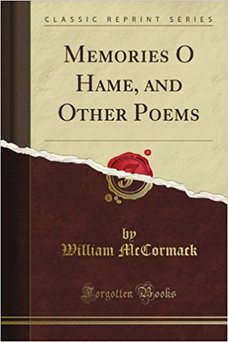
Postscript--William McCormick's Book of Poems
After the violence that claimed the life of his brother, William McCormick and the Scottish McCormick Clan left the Cripple Creek Mining District for mining work elsewhere. A book titled "Memories O'Hame and Other Poems" was published in 1915 with over 45 selected poems by William McCormick. Part of a biographical sketch in this book offers this postscript about the life William McCormick. [As shown to right, the book reverts to the original Scottish spelling of "McCormack".]
"Like Scotland’s great singer, Robert Burns, [William McCormack] could not witness “man’s inhumanity to man,” without expressing his indignation in verse; he was forced to seek employment beyond the State of Colorado, which he loved so well. In 1904, he accepted a position in Mexico, where he remained and prospered for over nine years, until forced by the Mexican War to get out of the danger zone. In July of 1914, he returned to the suburbs of Denver, Colorado, where he proposed spending the evening of his life, cultivating his gift of the muse, and following literary pursuits; but his twilight was short; he was only back in Colorado, two months, when after a few days of suffering, God took him home, leaving in sorrow behind, his widow, two sons, one daughter, and a host of warm, loyal friends.”
“In deciding to publish her lamented and gifted husband’s poems, Mrs. McCormack is not only perpetuating his memory, but is at the same time furnishing those who knew him in life and all others who may read his musings on “Hame” and other subjects with many a pleasant and profitable hour.”
Submitted by Mary Ann McCormick Hamm, October 2017
With assistance from the Research Archives of the Victor Heritage Society
After the violence that claimed the life of his brother, William McCormick and the Scottish McCormick Clan left the Cripple Creek Mining District for mining work elsewhere. A book titled "Memories O'Hame and Other Poems" was published in 1915 with over 45 selected poems by William McCormick. Part of a biographical sketch in this book offers this postscript about the life William McCormick. [As shown to right, the book reverts to the original Scottish spelling of "McCormack".]
"Like Scotland’s great singer, Robert Burns, [William McCormack] could not witness “man’s inhumanity to man,” without expressing his indignation in verse; he was forced to seek employment beyond the State of Colorado, which he loved so well. In 1904, he accepted a position in Mexico, where he remained and prospered for over nine years, until forced by the Mexican War to get out of the danger zone. In July of 1914, he returned to the suburbs of Denver, Colorado, where he proposed spending the evening of his life, cultivating his gift of the muse, and following literary pursuits; but his twilight was short; he was only back in Colorado, two months, when after a few days of suffering, God took him home, leaving in sorrow behind, his widow, two sons, one daughter, and a host of warm, loyal friends.”
“In deciding to publish her lamented and gifted husband’s poems, Mrs. McCormack is not only perpetuating his memory, but is at the same time furnishing those who knew him in life and all others who may read his musings on “Hame” and other subjects with many a pleasant and profitable hour.”
Submitted by Mary Ann McCormick Hamm, October 2017
With assistance from the Research Archives of the Victor Heritage Society
ABOUT THE AUTHOR
Mary Ann McCormick Hamm, sister of David Malcom McCormick, lives in the Denver area with her husband, Bill. Mary Ann notes that her brother’s first name came from their maternal grandmother’s last name, and his middle name came from their paternal grandfather’s first name.
Mary Ann’s name came from a combination of the names of her grandmothers--Mary (from the first name of her mother’s mother) and Ann (from the middle name of her father’s mother). The middle name of her youngest son, Micah David Hamm, is in honor of her brother and maternal grandmother.
Mary Ann McCormick Hamm, sister of David Malcom McCormick, lives in the Denver area with her husband, Bill. Mary Ann notes that her brother’s first name came from their maternal grandmother’s last name, and his middle name came from their paternal grandfather’s first name.
Mary Ann’s name came from a combination of the names of her grandmothers--Mary (from the first name of her mother’s mother) and Ann (from the middle name of her father’s mother). The middle name of her youngest son, Micah David Hamm, is in honor of her brother and maternal grandmother.
ABOUT THE AMAZING EARLY VICTOR PHOTO
Mary Ann and Bill Hamm commissioned the Victor Heritage Society to find an appropriate place to display her brother’s early Victor photo so it will be preserved, accessible for viewing by the people of Victor, and serve as a lasting tribute to David and the McCormick family. It is now displayed in the Claim Jumper ~ Victor Post Office Building for everyone to see.
Mary Ann and Bill Hamm commissioned the Victor Heritage Society to find an appropriate place to display her brother’s early Victor photo so it will be preserved, accessible for viewing by the people of Victor, and serve as a lasting tribute to David and the McCormick family. It is now displayed in the Claim Jumper ~ Victor Post Office Building for everyone to see.
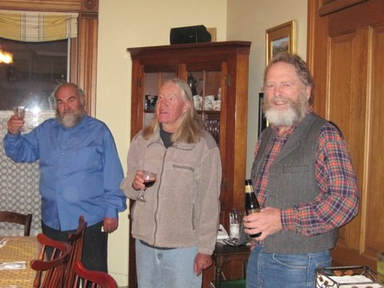 HERE'S TO YOU BEAN (middle) FOR A FABULOUS LIFE WELL LIVED. From All Your Cherished Friends, including Bryce Vinyard (left) and Patrick O'Leary (right).
HERE'S TO YOU BEAN (middle) FOR A FABULOUS LIFE WELL LIVED. From All Your Cherished Friends, including Bryce Vinyard (left) and Patrick O'Leary (right).
The framed early Victor photo is REALLY BIG (nearly 65" x 24"). A close-up examination of it shows amazing details of what Victor looked like when it was founded nearly 125 years ago and the McCormack family first came to the Gold Camp. Viewers may be quite surprised at what they can (and cannot) identify in the photo. Many (perhaps most) of the structures in the photo were destroyed in Victor's Great Fire on August 21, 1899.
Comments to date by those who have studied the photo and research efforts by the Victor Heritage Society have resulted in these preliminary observations (which are also included in a notebook accompanying the photo display).
Studying the photo brings to mind the sly comment that “Bean” was known to make on more than a few occasions—“Tell My Lyin’ Eyes It Ain’t So”. Viewers are invited to share observations from their “Eagle Eyes” on the blank pages in the notebook accompanying the photo, or by emailing [email protected]. The VHS web site will provide more details about the photo as they are clarified.
Those who attended the September 2017 meeting of the Victor Heritage Society had an opportunity to preview "Bean's Fantastic Photo" close-up with a magnifying glass and compare it side-by-side with other historic panoramic Victor photos.
Comments to date by those who have studied the photo and research efforts by the Victor Heritage Society have resulted in these preliminary observations (which are also included in a notebook accompanying the photo display).
- On the horizon in the photo—Squaw Mountain is to the left, Battle Mountain toward the middle, and Bull Hill to the far right.
- The photo may have been taken from what is now the Cunningham Addition (on the east side of Victor) toward the end of Cedar Street (which now leads to an electric power substation near the top of “Pickle Hill” where there are remnants of several unoccupied houses). From this vicinity, the angle of the views looking toward Squaw Mountain, Battle Mountain and the City of Victor match those in the photo. Bull Hill can also be seen from this location.
- A tall white structure toward the middle-right in the photo is Winfield Scott Stratton's Independence Mine. Stratton filed a claim for the Independence Mine on July 4, 1891, and soon became the first millionaire in the Mining District.
- The train trestle and tracks are for the Florence & Cripple Creek Railroad—the first railroad to arrive in Victor on May 23rd, 1894 by traveling along what is now known as Phantom Canyon Road. Perhaps the photo was taken to commemorate this important event?
- The large, longer brownish structures in the middle of the photo (that the F&CC railroad tracks pass in front of) are the Strong Mine and its facilities for shipping ore on F&CC rail cars (to the left).
- The Portland Mine 1 & 2 Headframes can be seen on Battle Mountain by looking above and to the left of the Independence. Perhaps the Ajax Mine Headframe also can be seen on the horizon closer to Squaw Mountain?
- There is no sign of the rail bed, track or depot for the Midland Terminal Railroad—the second railroad to arrive in Victor on December 16, 1894.
- Based on these preliminary observations, and the fact that the aspen trees are not leafed out, the date of the photo might be late May or early June of 1894.
- Few other buildings in the photo have been identified—most likely because many burned in the Great Victor Fire on August 21, 1899.
- One exception is the Original Victor Hotel with double balconies and a cone-shaped tower that can be identified by looking very closely with a magnifying glass.
- With your help and more research, perhaps more of the pre-fire structures may be identified.
Studying the photo brings to mind the sly comment that “Bean” was known to make on more than a few occasions—“Tell My Lyin’ Eyes It Ain’t So”. Viewers are invited to share observations from their “Eagle Eyes” on the blank pages in the notebook accompanying the photo, or by emailing [email protected]. The VHS web site will provide more details about the photo as they are clarified.
Those who attended the September 2017 meeting of the Victor Heritage Society had an opportunity to preview "Bean's Fantastic Photo" close-up with a magnifying glass and compare it side-by-side with other historic panoramic Victor photos.
THE PAST MATTERS. PASS IT ALONG.
The Next Generation Will Only Inherit What We Choose to Save and Make Accessible.
Please Share Your Memories and Family Connections to Victor & the World's Greatest Gold Camp
By Contacting Victor Heritage Society, PO Box 424, Victor, CO 80860 or e-mail [email protected].
The Next Generation Will Only Inherit What We Choose to Save and Make Accessible.
Please Share Your Memories and Family Connections to Victor & the World's Greatest Gold Camp
By Contacting Victor Heritage Society, PO Box 424, Victor, CO 80860 or e-mail [email protected].
VictorHeritageSociety.com
Copyright © 2023 Victor Heritage Society. All Rights Reserved.
Copyright © 2023 Victor Heritage Society. All Rights Reserved.
